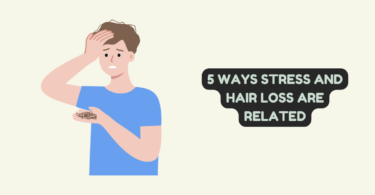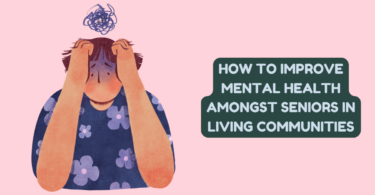
Cold Sores
Cold sores are very common, and they’re also highly annoying. They are a common viral infection characterized by tiny, fluid-filled blisters that appear around your lips. When blisters appear, you don’t feel like going out anymore. You shy away from people because they might mistake it for something else. Also, along with the cluster of lesions, you may feel feverish and lethargic, forcing you to stay home and wait for them to clear up.
What Is A Cold Sore?
Cold sores are chronic clusters of vesicular and erosive lesions. It comes from the Herpes Simplex Viruses (HSV), which are divided into two categories: HSV1 and HSV2.
HSV1 is mainly transmitted through oral contact; that’s why it’s called oral herpes. HSV2 is sexually transmitted and causes genital herpes. If you believe you have a hormonal imbalance, it is a good idea to read some articles on reputable websites like CijenaCPA.ba to learn how to treat or take action when you have a hormonal imbalance.
Both types of herpes are lifelong conditions; most of the time, symptoms don’t appear. When you have the virus, you can spread it quickly without knowing that you do. But when symptoms appear, that’s when you’re highly contagious. The symptoms can be vesicular lesions or ulcers inside the mouth, on the lips, on the crevices of your hands called herpetic whitlow, and around the inner, middle, and outer ear called herpes zoster oticus.
Currently, there is no treatment for HSV. Your doctor may prescribe anti-viral medications to suppress the occurrence of the symptoms. When you feel like the cold sores are healing, it doesn’t mean that the HSV is gone. What usually happens is that the virus lies dormant in the ganglion cell neurons and will be awakened by specific triggers.
That’s the reason cold sores keep on coming back. But keeping your body healthy can keep it dormant for more extended periods, so you don’t have to worry too much. It would be best to boost your immunity with foods like legumes citrus and bananas. These foods are rich in vitamins B and C, which could help keep you healthier and increase your immunity. To give you a better idea and to know when cold sores will recur, here are the possible reasons you keep getting cold sores:
Hormonal Changes
The sudden surge of hormones can trigger the release of HSV1. For women, this usually appears just before the menstrual cycle. Pregnancy can also cause cold sores to surface. For women who typically encounter cold sores, know that you can expect them to appear during these times. And when you know you’re having your period, you can counter it by keeping calm and relaxed by eating well-balanced food, doing moderate exercises to release endorphins, and avoiding stress and fatigue.
Unnecessary worrying and anxiety while pregnant can trigger the occurrence of cold sores, so positive ones must replace these negative emotions. Although, you also need to remember that too much excitement, though it’s a positive emotion, can be a trigger too.
Countering negative emotions by imbibing a feeling of steadiness and calm may work in your favor. You can do this by diffusing essential oils to create a serene and relaxing atmosphere in your space. You can also choose oils with anti-inflammatory properties to help soothe your cold sores.
Sunlight And Wind
Sun exposure is a known trigger of cold sores. The ultraviolet rays from the sun play a significant role in cold sore outbreaks. That’s why when going out, it’s always important to protect yourself from the sun’s harmful rays by wearing sunscreen. You may use a lip balm with SPF 30 to protect your lips and prevent the sores from coming out.
If the sun’s heat triggers cold sores, the intense cold during winter can do the same. The cold, dry air of the winter season is a known cold sore trigger. If you know you’re vulnerable to it, use a lip balm to prevent your lips from chapping. It is essential because dry lips can aggravate cold sores. A good suggestion during the winter is to stay in and sleep to charge your body and prevent exposure to harsh elements.
Stress And Fatigue
Stress is probably the most common trigger of all. Do you ever notice that when you’re stressed, your eczema flares up, your stomach somersaults, and you get diarrhea? That’s because your body releases cortisol, which many people call the stress hormone.
Cortisol is your body’s fight or flight response when faced with stress. An imbalance of cortisol can affect many aspects of the body, including the skin, thus the occurrence of cold sores. High cortisol levels can lead to inflammation, a characteristic of the illness.
Stress and fatigue can be difficult for some people to eliminate, but meditation and breathing can help prevent them. Spending time with nature and playing with your pets can also relieve stress. You only need to find your anti-stress potion through mindful activities to counter it and prevent the outburst of cold sores.
Changes In The Immune System
If your body is busy fighting an infection like the flu, you may experience an outbreak of cold sores. Changes in the immune system and rerouting your body’s defenses can make HSV1 feel like it’s time to come out. If you’re undergoing chemotherapy for cancer treatments or if you have HIV, cold sores will be more persistent and severe and can take longer to go away.
The best way to deal with a weakened immune system is to have a sufficient amount of sleep, eat healthy food, be physically active, and quit smoking and drinking. If all the mentioned steps are not very productive and you need faster results you can apply supplements, that come as capsules, tablets, or Intravenous therapy. Compared to capsules and other types of supplements the benefits of IV therapy are the effectiveness in correcting vitamin balance, instant relief, and a boost of energy. However, in the long run, all supplements get you the same result, depending on your consistency in using them.
Conclusion
Although cold sores are common, it doesn’t mean you must tolerate them. Cold sores don’t only affect the physical but can also interfere with your mental and emotional health. Identifying its triggers, like hormones and stress, and how to effectively counter them will be your best defense.






